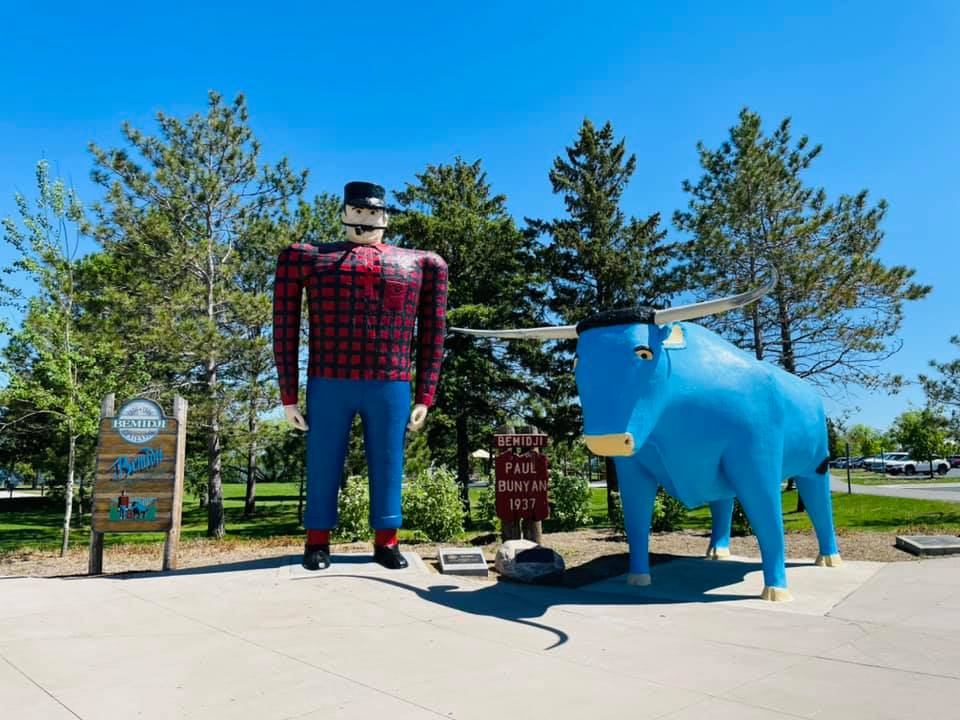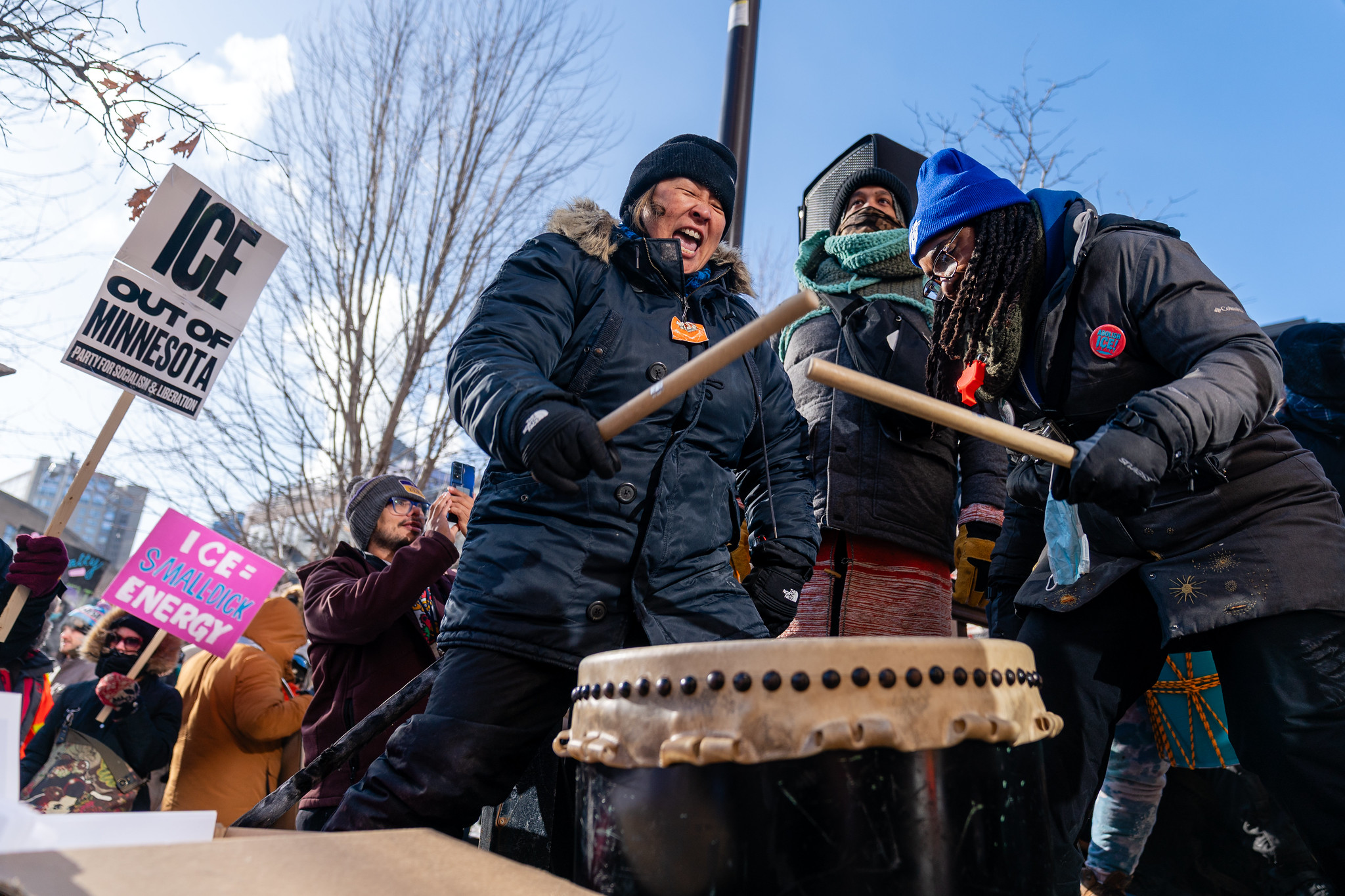It seems like everyone, no matter their level of familiarity or expertise on the topic, has an opinion about how Minnesotans talk. Or, frankly, about how people talk in general.
As a linguist, I always feel a little bit like an epidemiologist circa March 2020—you have to get used to people with only a cursory understanding of your field suddenly having strong opinions about things you’ve spent your career researching. No topic will bring stronger opinions out faster than a discussion of Minnesota English. It is, indeed, quirky and distinct—and no one, whether a linguist or your cousin’s brother-in-law’s friend from Brainerd, will hesitate to tell you their thoughts on why it sounds that way.
Let’s start off with a little background on American dialects. East of the Mississippi, you’ll encounter quite a bit more variation than you will in the states that were settled during the westward expansion. Back East, you’ll hear profound differences in pronunciation (phonology), lexicon, and grammar (syntax) as you move from New England south along the coast and into the South. That part of the country was colonized first, so the dialects have been there longer and had more time to evolve.
As the country grew and as more populations mixed, individuals started to drop dialect features that made them stand out. People naturally don’t want to sound “wrong” when speaking, so they stop using pronunciations or vocabulary that makes them sound unusual. You'd be hard-pressed to tell the difference between someone from Colorado or Kansas, for example, because so many populations had mixed by that point as those places were settled during a period of rapid migration from East to West. The settlers themselves came from a range of American states and foreign countries. The West and the Great Plains all came out sounding pretty much the same, since no one who settled there really wanted to sound like a southerner or a Scot anymore.
But then there's Minnesota and Wisconsin. This part of the country had a strong influx in immigration in particular from Germany and Scandinavia. It’s this concentration of immigrants with similar foreign origins that sped the development of the speech patterns that we all know. Minnesota wasn’t just defined by these immigrant groups, of course— there are Slovenes, Czechs, Finns, and plenty of others that contributed to the development of Upper Midwestern English (its formal designation). All it takes is a visit to the Iron Range to hear an even more unique mix: Minnesota English with some Finnish and Slavic special sauce.
All these new immigrants learned English and switched to using it as their primary language, but they didn’t always do it well. In areas where there are pockets of immigrants from the same country/region (say, Germany and Scandinavia), you had a critical mass of English learners who made the same mistakes. German, Swedish, and Norwegian are all Germanic languages that have plenty of similarities, even if they’re not mutually understandable. Their sound systems (phonology) are much more alike than, say, English and French. With all these new Minnesotans learning English at the same time, a German (mis)pronunciation that might sound weird in Philadelphia didn’t sound at all odd to the newly Americanized Norwegians down the street.
A cringy but common example is using the word “borrow” to mean “lend.” That particular word, borrow, is similar to a German word, “borgen,” which can mean “borrow” or “lend out,” depending on context. Swedish and Norwegian have cognate words to English “loan” that work the same way. At this point, between “borrow” and “lend,” none of our English-learning great-grandparents seemed to know which word meant what. If a word or turn of phrase sounded normal to Swedes, Norwegians, and Germans alike...and those people made up most of the population...then that little quirk is now part of how English is spoken in your region. Using “borrow” for both stuck, and now you’ll hear your uncle Pete talking about borrowing someone his snowblower.
This goes 100% for your stereotypical “Minnesooooota” vowels. They're not wrong, they're just Germanic. Again, this is what happens when your population is made up mostly of Germans and Scandinavians whose native vowels sounded normal to each other. Standard English pronunciation uses (getting fancy here) diphthongized vowels instead of pure long vowels. Say the name “Fargo”—provided you’re not from there—and you’ll notice your lips pushing forward a little bit at the end into a “W” shape. Norwegians do no such thing. Nor Germans. Now there’s competition in the language between the “American” way of saying the name versus the “local” way—and cultural identity has entered the mix. Saying “Fargoooo” is just the way we do things around here now.
In any case, when you go back home to outstate Minnesota for Thanksgiving this year, don’t feel like you have to cringe at “bad grammar.” Local quirks are understandable and to be expected. They won’t match the English textbook and they might cost you points on a college admission exam, but they’re just the way language developed here, for better or worse.






